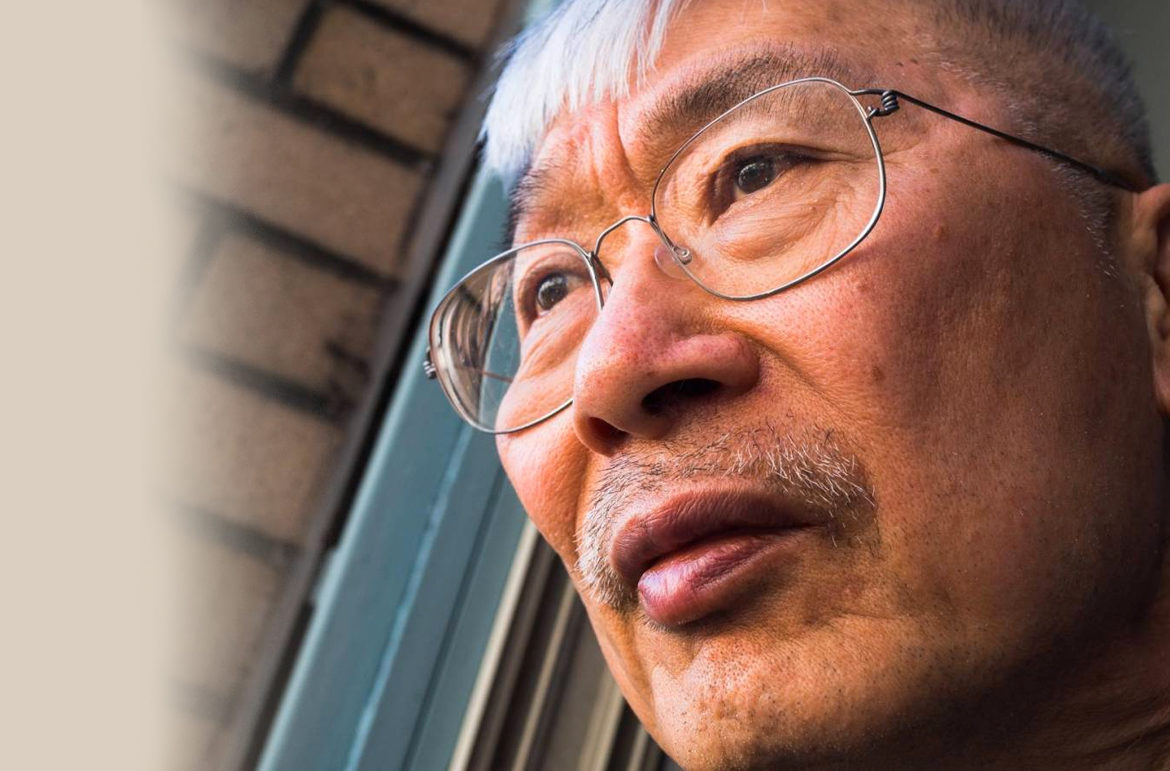We were saddened to hear of the death of Jim Wong-Chu, writer, editor, and community organizer. Jim was co-founder of Ricepaper magazine and the Asian Canadian Writers Workshop, an editor of multiple anthologies, a mentor to countless writers, and a photographer. Earlier this year he suffered a serious stroke, and he passed away on July 11.
Wong-Chu was a leader and champion of Asian Canadian literature—challenging the Canadian literary establishment’s lack of Asian writers. Chinatown Ghosts (Arsenal Pulp Press, 1986) was the first poetry book by an Asian Canadian writer. He was the editor of several other groundbreaking anthologies of Asian Canadian writing, including Many Mouthed Birds: Contemporary Writing by Chinese Canadians (D&M, 1971), Swallowing Clouds: An Anthology of Chinese-Canadian Poetry (Arsenal Pulp, 1999), Strike the Wok: An Anthology of Contemporary Chinese Canadian Fiction (TSAR, 2003), and AlliterAsian (Arsenal Pulp, 2015), compiling the best of twenty years of Ricepaper magazine.
Born in Hong Kong, Jim Wong-Chu came to Canada in 1953 to live with his aunt and uncle as a “paper son.” Coupled with the racism he experienced in Canada, this sense of displacement led to his lifelong exploration of cultural identity. In the 1970s, when the Canada Council began offering funding to new independent publishers, Jim and other writer-activists, including Sky Lee and Paul Yee, established the Asian Canadian Writers Workshop (then called the Chinese Canadian Writers Workshop). They offered workshops and manuscript advice for emerging writers at a time when there was no visible presence of Asian Canadian writers. Now it has grown to a huge community and includes literAsian: an annual festival of Pacific Rim Asian Canadian writing.
In addition to being a writer, community organizer and activist, editor, and literary programmer, Jim was also a photographer, historian, and radio producer. Jim Wong-Chu’s photography was exhibited in 2014 at the Vancouver International Centre for Contemporary Asian Art. Taken when he attended Vancouver School of Art (now Emily Carr), the exhibit was called “Jim Wong-Chu: Photographs 1973–1981: People, Place, Politics” and depicted Vancouver’s Chinatown from a young Chinese Canadian’s perspective.
Jim Wong-Chu will be missed, but his impact in the Asian Canadian writing community will endure. For more about Jim Wong-Chu and his contributions to Canadian literature, read: ACWW’s Tribute; a June 2014 interview in Ricepaper; and this Georgia Straight Short-Doc on Jim Wong-Chu.

